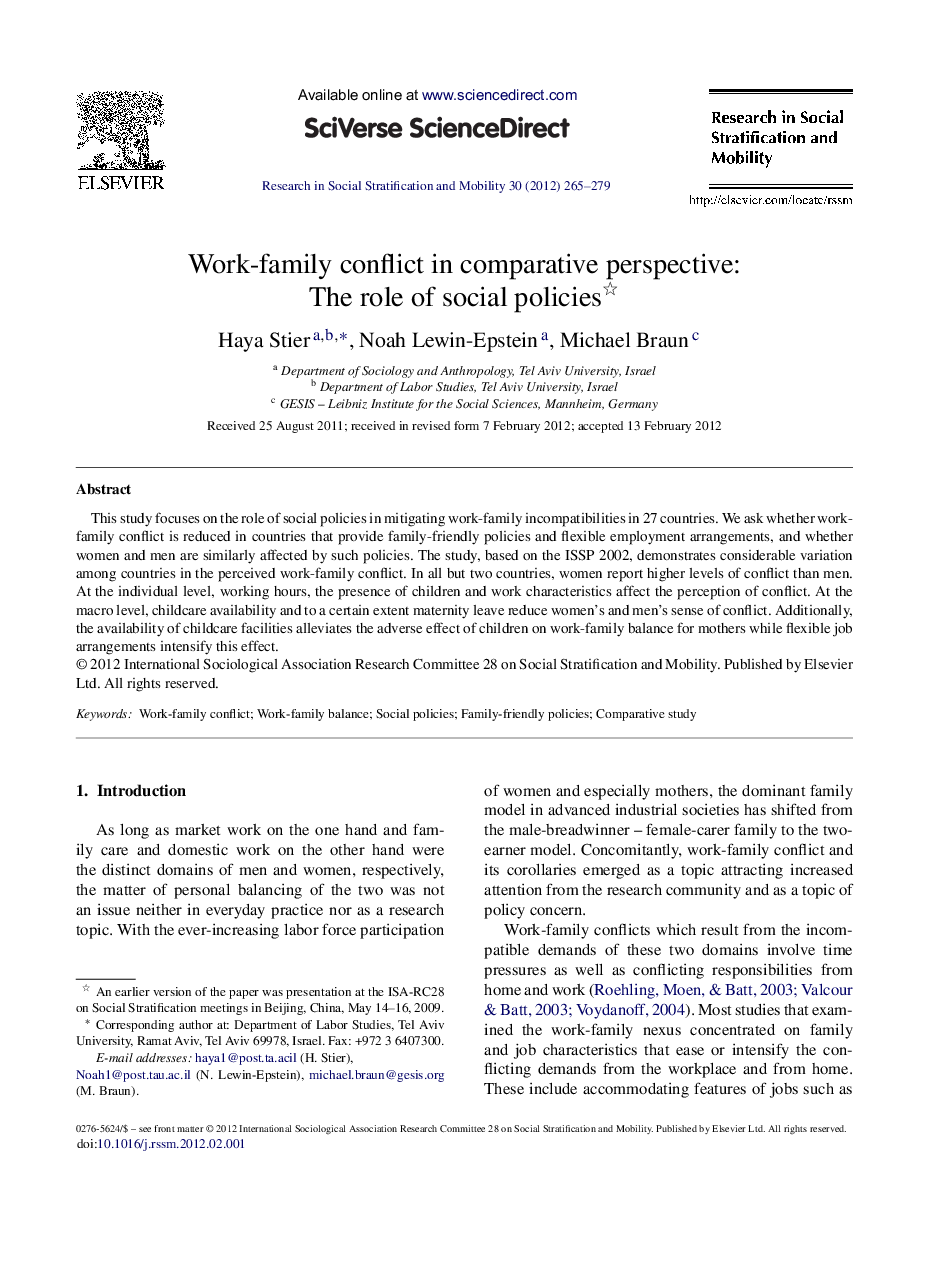| Article ID | Journal | Published Year | Pages | File Type |
|---|---|---|---|---|
| 998656 | Research in Social Stratification and Mobility | 2012 | 15 Pages |
This study focuses on the role of social policies in mitigating work-family incompatibilities in 27 countries. We ask whether work-family conflict is reduced in countries that provide family-friendly policies and flexible employment arrangements, and whether women and men are similarly affected by such policies. The study, based on the ISSP 2002, demonstrates considerable variation among countries in the perceived work-family conflict. In all but two countries, women report higher levels of conflict than men. At the individual level, working hours, the presence of children and work characteristics affect the perception of conflict. At the macro level, childcare availability and to a certain extent maternity leave reduce women's and men's sense of conflict. Additionally, the availability of childcare facilities alleviates the adverse effect of children on work-family balance for mothers while flexible job arrangements intensify this effect.
